If all gardens are autobiography, I like what mine says about me.
It’s a little messy, sure, and it’s definitely a work in progress, but it’s full of plant, insect, and bird life. It’s a place for creativity and exploration, for repurposing materials and for experiments to run their course. The garden is one place where I’m able to shed the perfectionism that plagues other parts of my life. And it gives us food.
Another way of putting it is that I have a high tolerance for failure in the garden.
Although I grew up helping my parents plant, harvest, and preserve much of what we ate during the year, I have gardened only sporadically throughout my adult life. It took a crisis of confidence to get me back in the garden.
I had finished graduate school in May 2008 and begun looking for work as the economy crumbled throughout that fall and winter. I eventually found the work I needed to find and made it my own, although it looks very different from what I’d expected.
And then came the lonely experience of infertility, a series of losses that is so rarely publicly discussed and is so privately heart-wrenching.
But in the shape of what felt like very personal failures, I began to distinguish a gift. Not in the usual, everything-happens-for-a-reason meaning of that sentiment. I don’t believe in happy endings. But I do believe in the transformative power of stories.
For me, this happened through the process of creating a garden.
After moving to Washington State, I found myself increasingly fascinated by native plants. I have spent hours photographing plants and observing their details, then scurrying home to my beloved Pojar and MacKinnon for identifications. With a few berry seasons under my belt, wild foods beckoned. Douglas fir and devil’s club for teas. Morels, chanterelles, and hedgehogs. Kelp. Beach asparagus.
I read and hiked, and read and hiked some more, and fell deeper in love.
Pretty soon, it wasn’t enough to see plants in the wild. I needed them closer at hand. To see them from my windows. To observe them in all stages and all seasons, in the semi-controlled laboratory of my garden. To touch them and work with them and be shaped in turn by their needs.
We live in a house that is almost 100 years old, built with old-growth timber that was likely logged within city limits. The city has grown up around us now, such that what was the edge of town is now a busy thoroughfare. In the course of creating a garden, I have dug out lost trinkets and the failed experiments of past gardeners, including my own; there were grave markers for pets and assorted urban detritus. Some of the challenges came from the home improvements we’ve been tasked with making during our tenure in this house. (Side note: Upgrading your sewer line is perhaps the least sexy of home repairs, but the most gratifying on a daily basis.)
But in the process of working with the soil and the plants, I became less rigid and more creative. I started writing again. We began keeping bees, which brings its own set of lessons in patience and observation.
And then there are days, in this age of ours, when a garden feels like an unimaginable luxury.
As I write, a fine ash falls from the sky. The remains of trees burned by forest fires along the Columbia River gorge mute the bright blue of a late summer’s day, the haze blunting what was supposed to have been record-breaking heat.
It feels post-apocalyptic. It has, over the course of this summer, begun to feel normal. It is heartbreaking.
A garden seems such a small thing, set against all we face in 2017.
There are the things we do to pay the bills and the things we do to earn our keep, to keep ourselves fed and housed and to make things just a bit easier for those around us and for those who will come after. Those things are necessary and good, at times even noble.
But those things don’t explain all that lies within us.
My obsession with plants feels selfish, like most obsessions, perhaps because we know that any attempt to rationalize our compulsions merely hides what we know to be true: we do these things because we must. We can channel the process into social or personal good, but that’s not really the point.
We stand, wild eyed and shy, bracing for the future with a strange romantic faith in the power of love. Not because love should be turned, somehow, into something productive, but because this love is in us but not of us.
The truth is that the smell of rain on dried pine needles or the pleasing symmetry of an emergent frond of sword fern feels like coming home.
*********
Before:
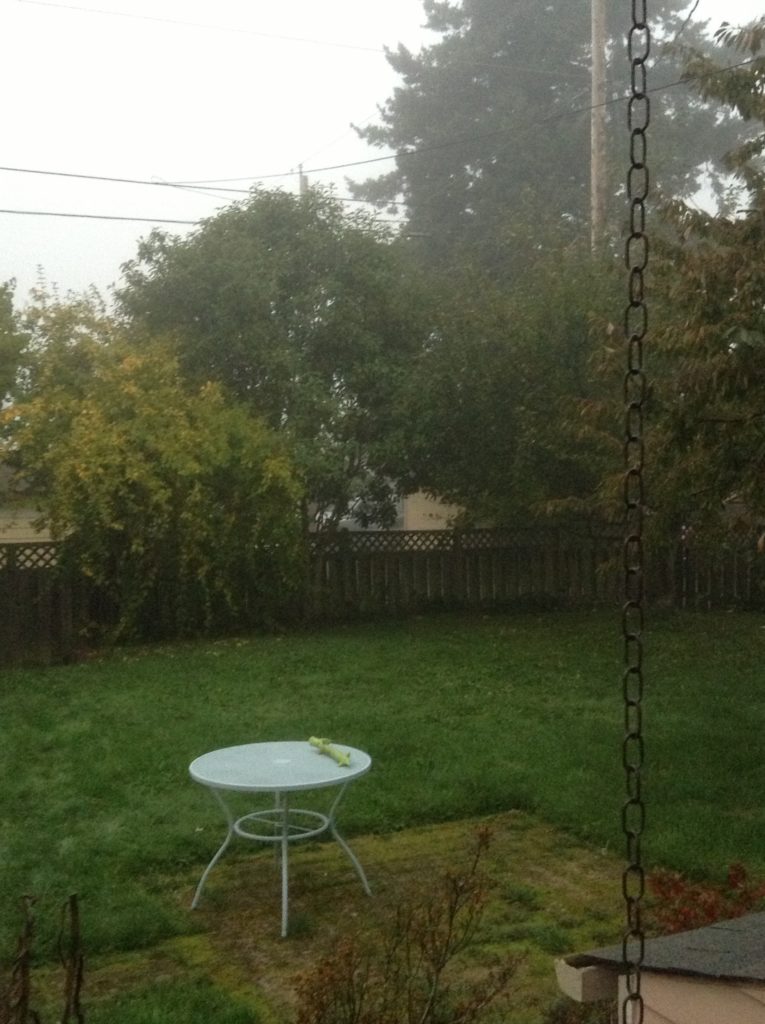
After:
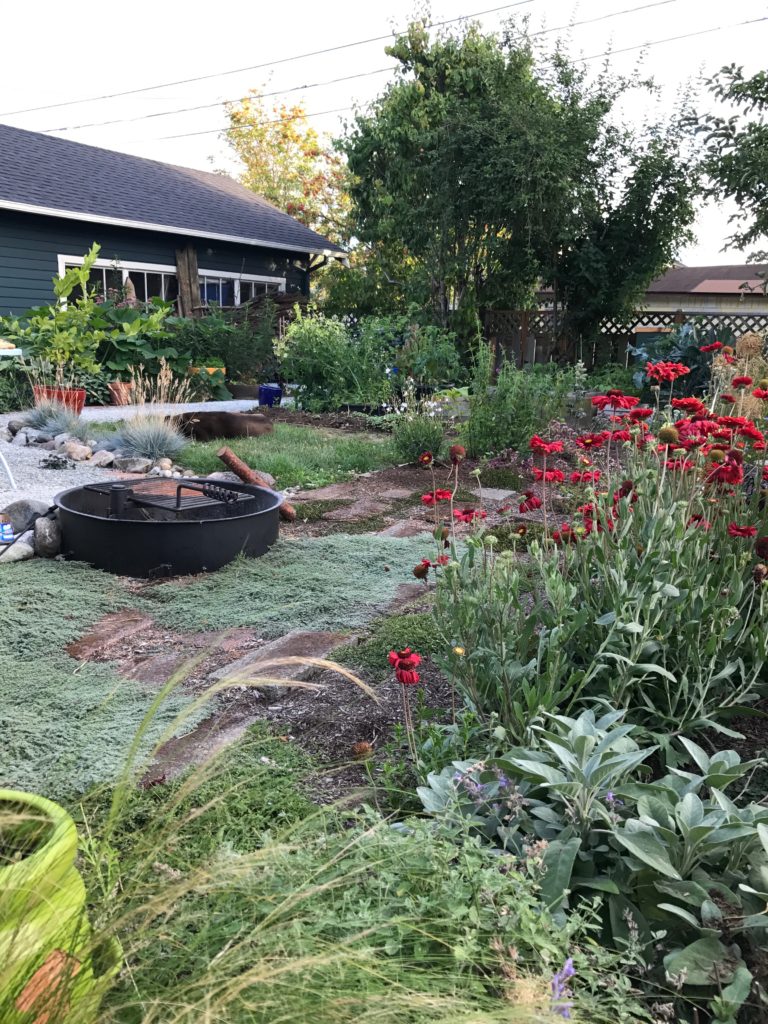
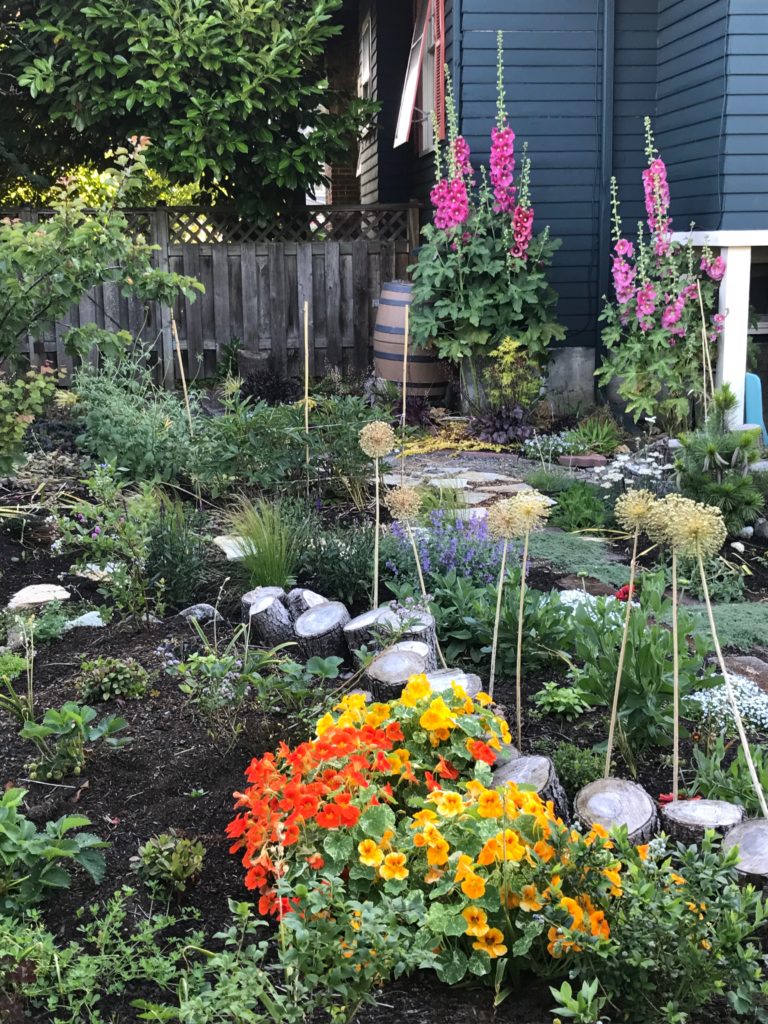
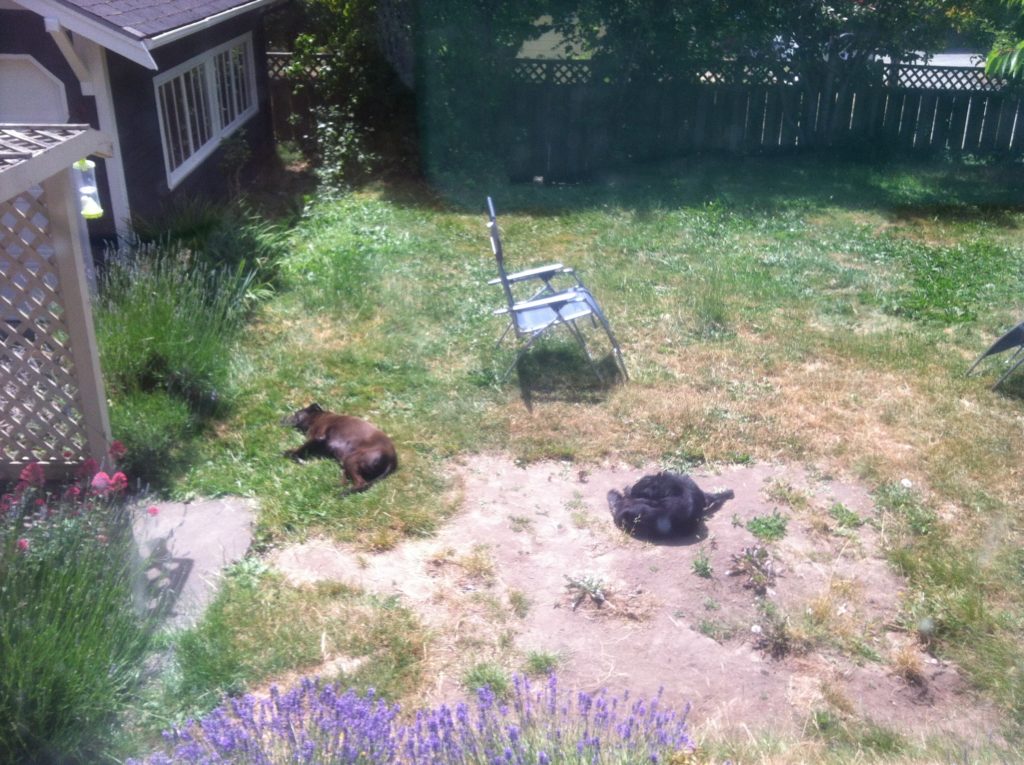
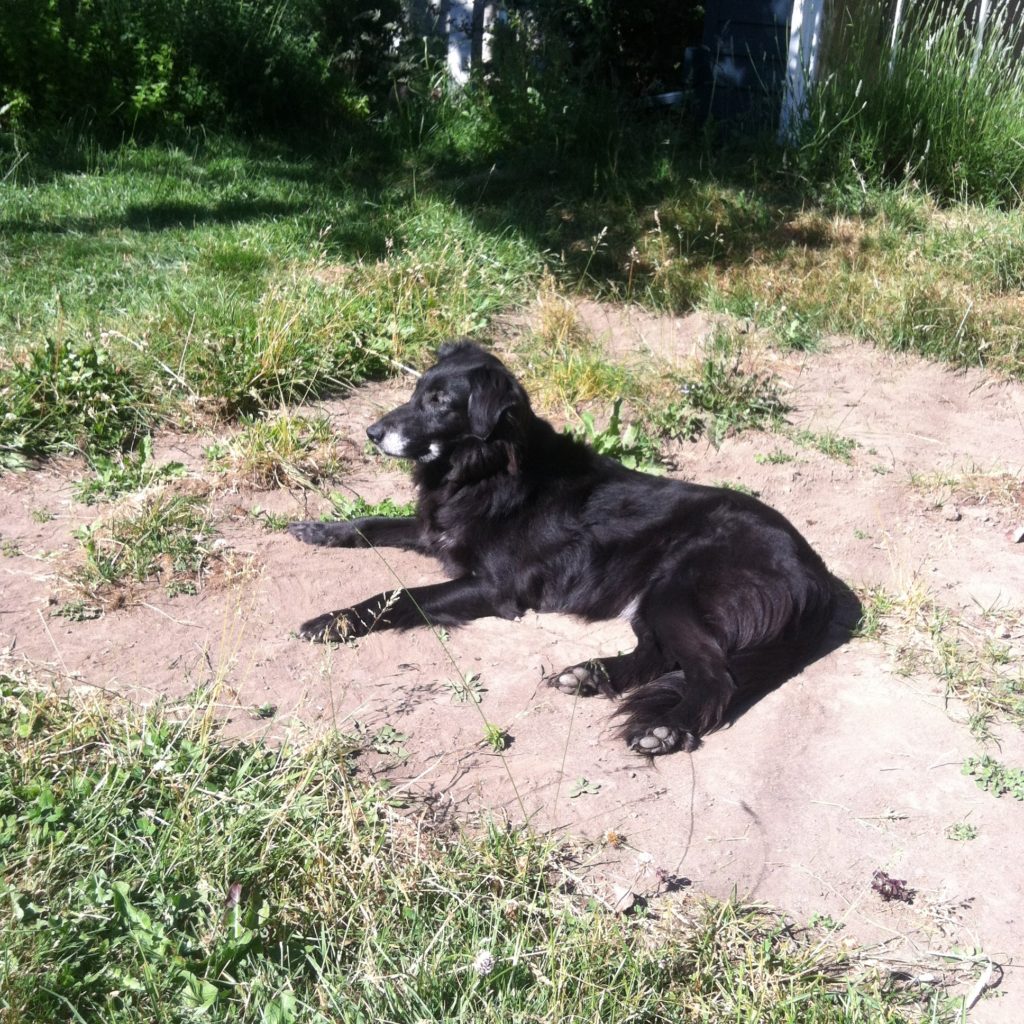
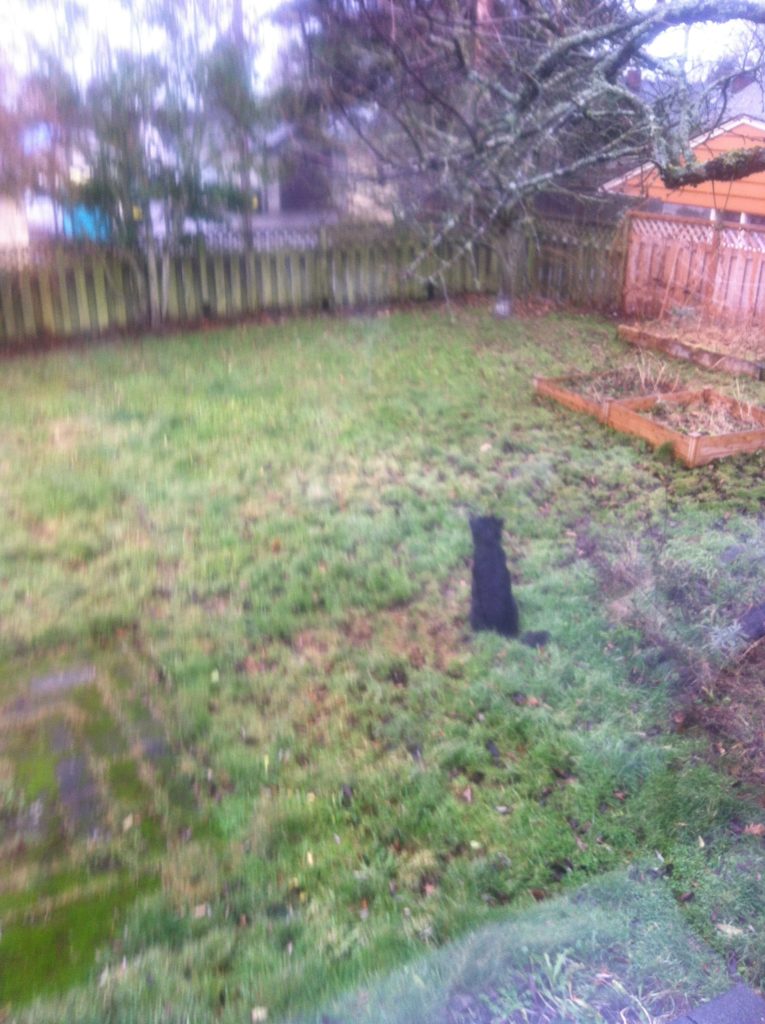
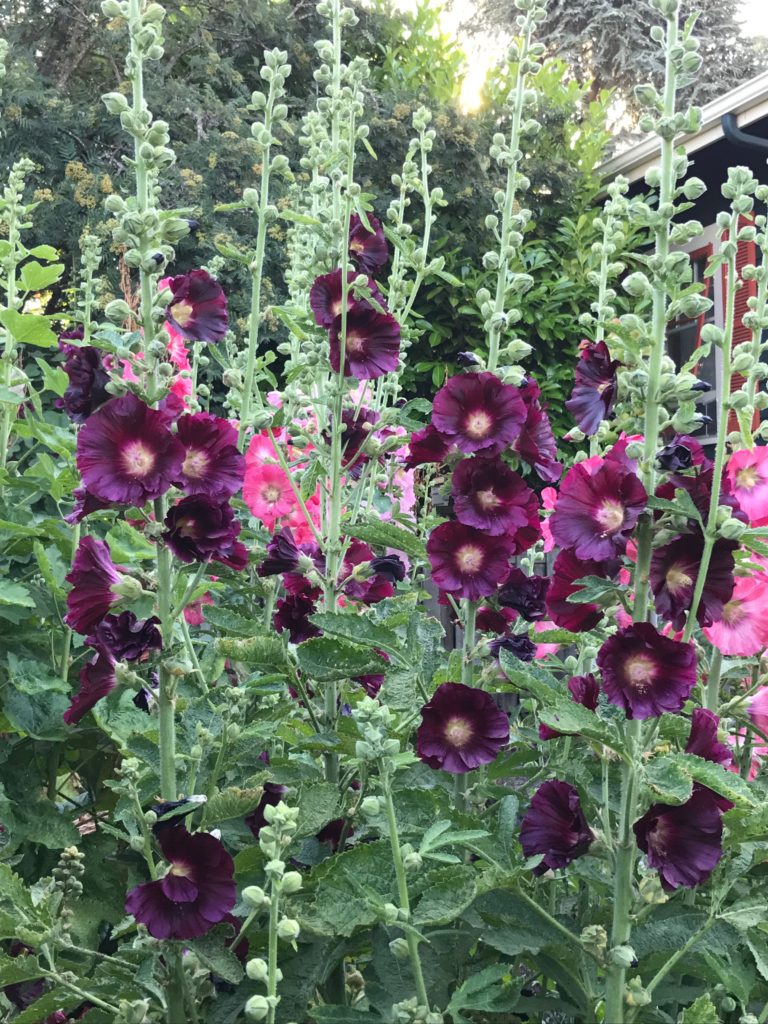
[…] Over time, your garden shapes you as much as you shape it. In short, over time you become a gardener. […]